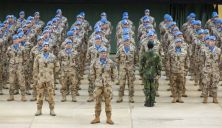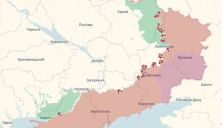NATO Secretary General Jens Stoltenberg, who is stepping down, warned against the EU’s defense efforts duplicating or competing with the military alliance, given limited funding and personnel, – Financial Times.
According to him, the EU’s ambitions to create separate command structures and planned rapid reaction forces risk diverting resources away from NATO.
“I welcome greater EU efforts in defense, as long as they do not duplicate or compete. What the EU should not do is start building alternative defense structures, like intervention forces,” he said, referring to the planned deployment of a 5,000-strong EU military contingent.
Stoltenberg noted that, considering the difficulty in staffing all positions within NATO’s command structure, “it would be rather odd if the same countries could not send as many officers as they should because they are instead creating an alternative structure.”
Alliance officials told Financial Times that the EU’s defense efforts are already diverting resources from NATO’s existing structures.
“If Europe is attacked, people need to immediately know who is in charge of responding. Competing structures create uncertainty… which only helps the enemy,” said one of the publication’s sources.
NATO is particularly concerned about the proposed expansion of the EU Military Staff, the body overseeing the EU’s military missions.
Officials said this plan could complicate the critical command system in the event of a conflict and also draw personnel away from NATO’s command structure, which is already understaffed.
NATO representatives are also unhappy with the EU’s aspiration to create its own set of military standards for member states’ armies instead of using NATO’s standards, which have been in place for decades.
“Countries can only have one set of goals regarding forces and capabilities; they cannot have two. This is NATO’s responsibility. One set of standards, one set of goals for forces and capabilities, one command structure. And that is NATO,” Stoltenberg said.
Officials also warned that the EU’s defense procurement plans could exclude NATO members such as the UK, Norway, and Turkey, which are not part of the European Union, thus weakening existing defense-industrial cooperation projects.
Jens Stoltenberg has held the position of NATO Secretary General since 2014. As of October 1, he will be replaced by former Dutch Prime Minister Mark Rutte.
Media reports have previously indicated that Stoltenberg will become the head of the Munich Security Conference.
Read also: Supporting Ukraine to be CoE’s top priority – new Secretary General of the Council of Europe














